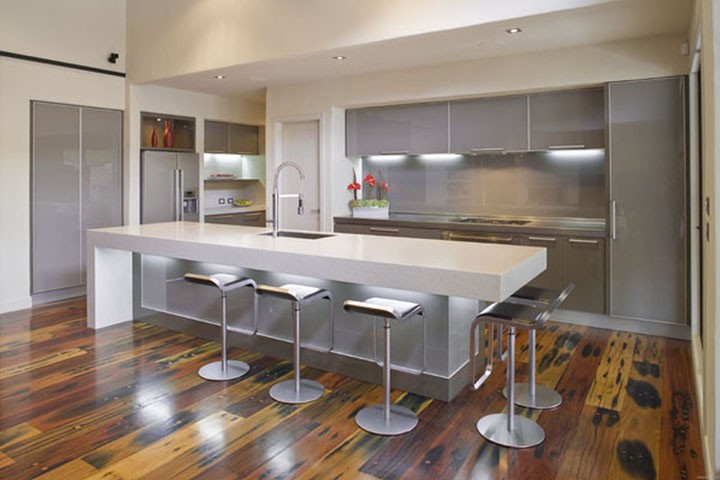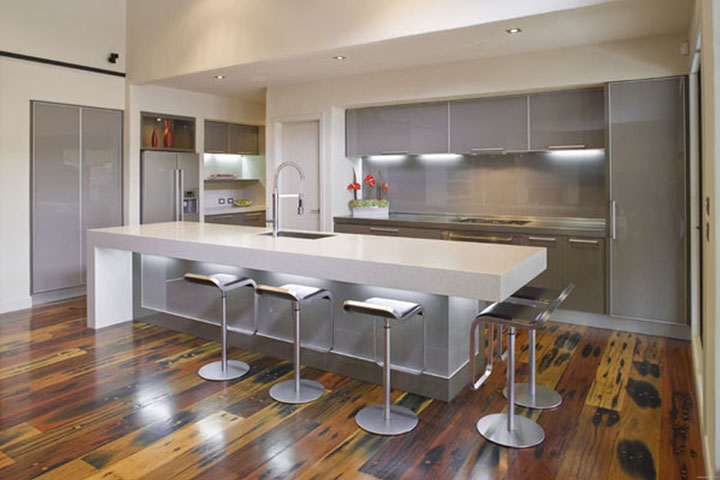
The modern kitchen fulfills many different roles. It’s a family gathering place, a house party hotspot, a homework help center, a storage headquarters and a five-star restaurant. For many homeowners, the functionality of a kitchen begins with a well-designed island.
Islands are ideal for a variety of kitchen tasks, including cooking, baking, cleanup, storage, informal dining, entertaining party guests and more. And because they can be accessed from multiple sides and heights, it’s much easier to gather around the kitchen island than the kitchen table. There are many ways to design a functional kitchen island, but let’s take a look at a few of the must-have features.
First, you’ll want to decide what you are going to use the island for most frequently and use those functions to devise your design and storage plan. For example, if you would like to use the island as a food prep station, include outlets for small appliances, a prep sink and storage for cooking utensils such as cutting boards, knives and mixing bowls.
If you are using the island as a dining area, make sure the countertop height is designed to fit standard chairs or stools. The island should be crafted to fit your utilitarian needs. As for the design itself, you can adjust the size, finish, color and details of your island to perfectly compliment the style of your kitchen and home.
Because most islands require quite a bit of space, it’s important to strategically plan your design. You may want to select a moveable island instead of a built-in, stationary one. Be sure to select an island size and style that won’t overwhelm your kitchen. If you choose to include seating with your island, you’ll want to pick chairs or stools that don’t get in the way of the workflow. Otherwise, your kitchen may become difficult to navigate.
To get the most out of every square inch of your kitchen island, you’ll want an effective cabinetry design. Creating more built-in storage means your island will appear more spacious, inviting and tidy. Within your cabinetry, try installing lazy susans, pullout shelves, or deep drawers to maximize the space. You can even install appliance garages to store toasters, mixers, juicers and more so that they are out of sight when not in use. There are even cabinetry designs that feature built-in spice racks, trashcans or utensil organizers so you can use every last inch of available space.
The key to creating a savvy kitchen island is planning. Use every square inch effectively and you’ll be surprised at how your kitchen space can be transformed.




